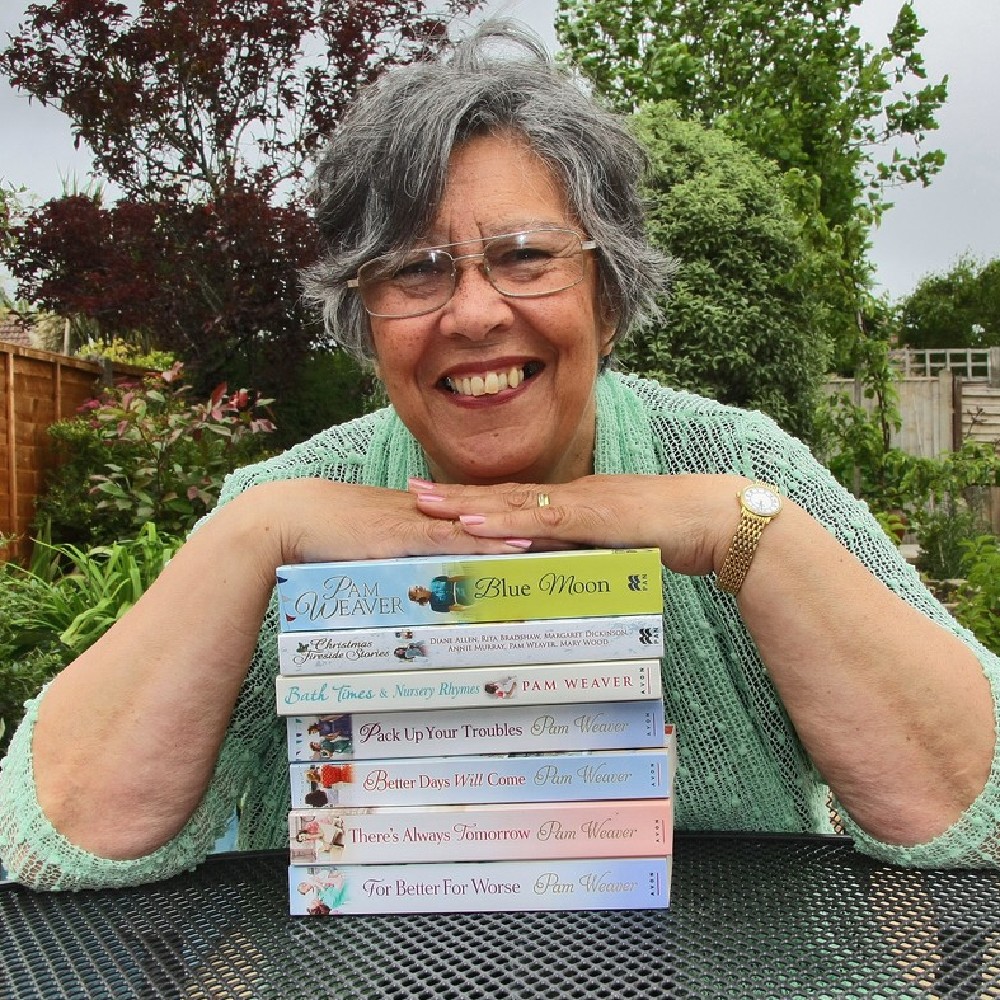Find your special time to write. If you are a morning person, get up a bit earlier. If you are an evening person, turn off the telly and switch on the laptop! You may also have to ‘train’ the people you live with that only a fire, flood or earthquake should be allowed to interrupt your writing time.

Pam Weaver
When you find time to write, get down to it straight away. We can all spend far too much time ‘fiddling’ – tidying the desk, sorting through old manuscripts, checking the mobile phone for messages - they can all eat up your precious writing time.
When doing research, think big. Don’t worry about collecting far more than you need for one project. It will give you a better understanding of the subject and in the end, nothing is wasted. Collate your research carefully. Another terrible time waster is looking for that piece of paper you’ve mislaid.
Write tightly. Choose your words carefully and delete unnecessary words. If each word you wrote, cost you £1, would you keep it? Be brave enough to get rid of sentences or whole paragraphs that may be beautiful prose but add nothing to the story. In other words, be ruthless about padding.
When disappointments came, (and they will) don’t become too depressed and don’t allow yourself to be tempted to give up. If athletes have to learn how to run through a pain barrier, so does the writer. As soon as you can, begin working on a new project but don’t throw the old one away. You may find another way of using it in the future.
Read constantly both for pleasure and for study.
Get the whole of the first draft done; then edit your work. Far too many writers have a perfect first chapter but little else. Your book will have to go through many edits. Be prepared to read it again and again looking for imperfections and ways to improve the story.
Leave your work for a period of time then re-read and re-edit. This will highlight mistakes in the plot, and ‘clumsy’ sentences.
If you write whodunits, you have to know how the book ends before you start. This means that the first chapter will be determined by the last. Some people plan each chapter and stick to the plan regardless, other writers write organically. Whichever way you write, you have to know with absolute clarity where your story is going.
Read your work aloud. When it comes to speech, dialogue is so important. You have to ask yourself, ‘Do you know anyone who speaks that way?’ If not, you need a rewrite. Listen to people’s conversations on the bus or in public places. Not to eavesdrop but get a better understanding of the way people converse. A duchess and a publican would have different ways of expressing themselves.

Sing Them Home by Pam Weaver is published on 14th June (price £6.99 in paperback by Pan Mac)
https://www.panmacmillan.com/authors/pam-weaver/sing-them-home
Other articles you might like:
A Day In The Life Of Me By Pam Weaver
10 Things Author Pam Weaver Wants You To Know About Her

